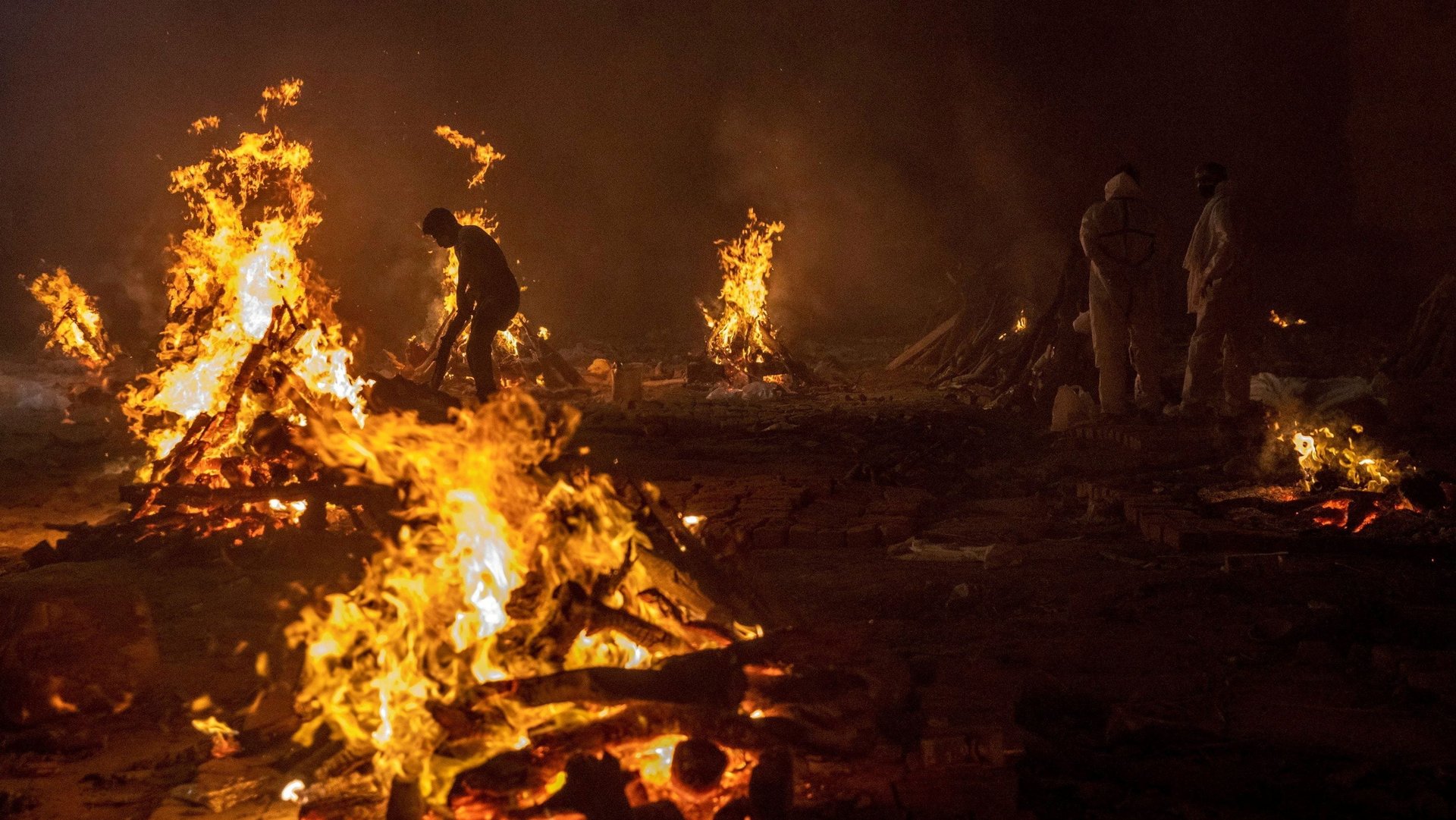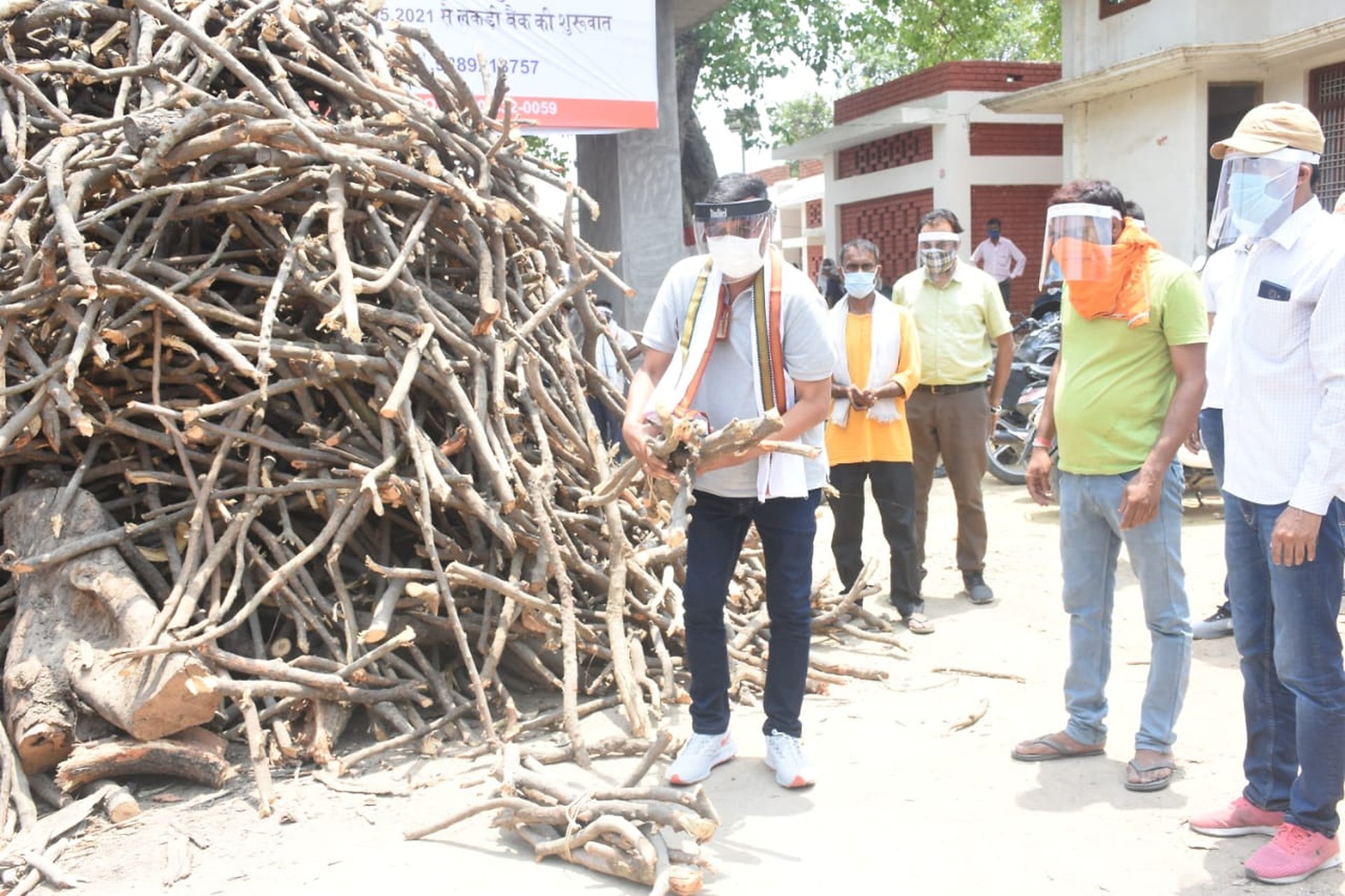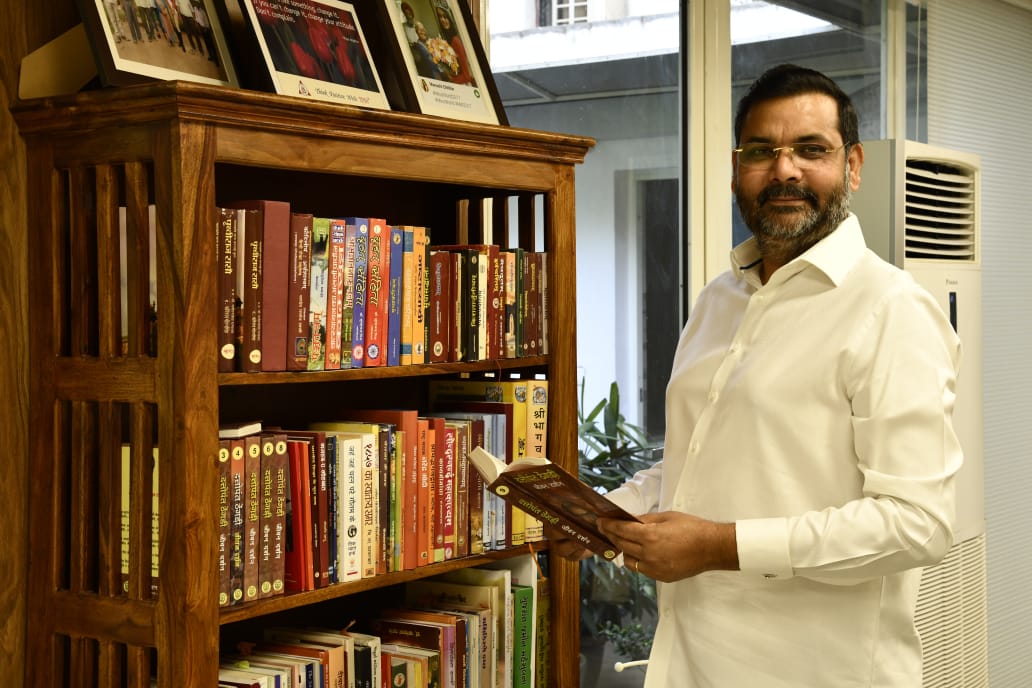A wood bank in India is helping families of Covid-19 victims perform last rites with dignity
The apocalyptic scenes of hundreds of corpses floating in India’s Ganga river in May created global headlines. While the world was shocked, officials from Uttar Pradesh, the country’s most populous state, insisted that funeral rites on the river have been prevalent for several years.


The apocalyptic scenes of hundreds of corpses floating in India’s Ganga river in May created global headlines. While the world was shocked, officials from Uttar Pradesh, the country’s most populous state, insisted that funeral rites on the river have been prevalent for several years.
But the bodies kept coming, as families of Covid-19 victims—without enough money to perform the last rites—kept abandoning corpses of loved ones at the river’s bank, instead of cremating them. Despite apparent state government indifference, a solution was needed.
Funerals need wood
Local entrepreneur Sanjay Rai Sherpuria decided to start a wood bank—the Baikunth Dham Antyeshti Lakdi Bank—a unique institution that helps with the cremation of unclaimed bodies. As well as sourcing wood, which is often only available on the black market, his team offers financial assistance to people who can’t afford cremations, he tells Quartz.
The increased number of deaths due to the second wave of Covid-19 led to a spike in wood prices. For example, in May, the price of pyre wood soared from 400-500 Indian rupees ($5.47-$6.84) for about 100 kg, to Rs 2,000-2,500 in some states.
“We also took care of the bodies that had no caregivers and were lying at the banks of the river without being claimed,” Sherpuria said.
How a wood bank functions
The wood bank largely operates on goodwill. Anyone can donate wood, which is then made available free of charge to families in need. The volunteers at the bank also help people acquire slots at the various cremation grounds. The team members have put up posters outside crematoriums and hospitals to spread awareness about the initiative.
Apart from that, the bank also tries to buy wood from the market, but the process hasn’t been easy so far. “The biggest challenge we are facing is the procurement of wood,” he says. “There hasn’t been any organised structure.” Nonetheless, Sherpuria and his team have set up around 10 banks at various riverbank locations in Uttar Pradesh’s Ghazipur district.

“It’s unfortunate that the situation has come to this,” he adds. “It is not a good job, we know, but it’s a relief to know that our initiative is helping the poor and we believe that every human deserves to be cremated with dignity.”
“Someone who has a garden and chopped wood lying unused can give it to us,” Sherpuria says. “People in rural areas are also helping us with whatever they can. We are getting donations of two, five, and even 100 rupees.”
So far, the initiative has collected around Rs 20 lakh ($27,000) and is aiming for Rs 1 crore ($135,000) so that the team can provide basic amenities to the ghats (riverbank locations) where cremations happen.
Innovative solutions to pandemic problems
Sherpuria and his team have also come up with an innovative solution to deal with the shortage of firewood, and possibly even provide employment. They are thinking of expanding the existing initiative beyond cremation.

“We are trying to go big with wood that has been made of cow dung,” Sherpuria explained. “We are adopting abandoned cows and making wood from their dung. This process needs more people and we can provide them with a source of income, especially people in the hinterland who have lost jobs due to the pandemic.”
According to estimates from the Centre for Monitoring Indian Economy think tank, around 2.84 million people in rural areas have lost their jobs in April alone, because of the second wave of Covid-19.
And there’s more, beyond last rites and jobs. For instance, the bank is also providing a telemedicine van to remote villages, along with a dispensary on the wheel.
“We are also running a Covid helpline,” Sherpuria says, as he lists his team’s achievements. “So far, around 16,000 people have connected with us through the helpline, around 53,000 people have leveraged the benefits of our dispensary through the wheel, and we have helped conduct the Covid tests of around 22,000 people.”